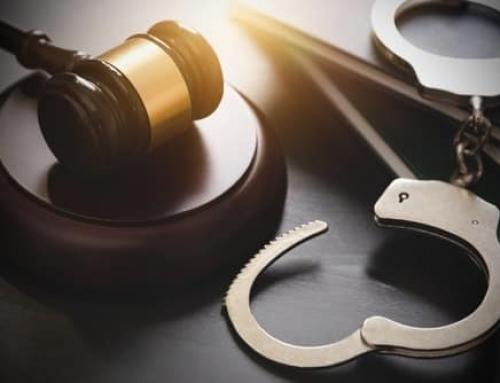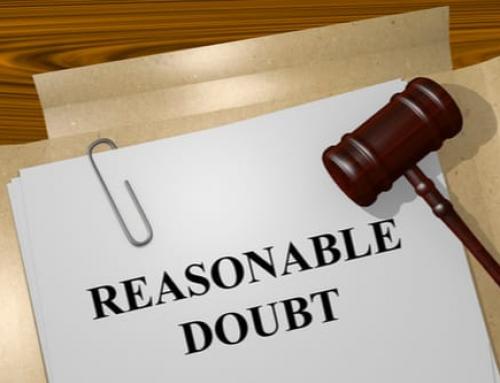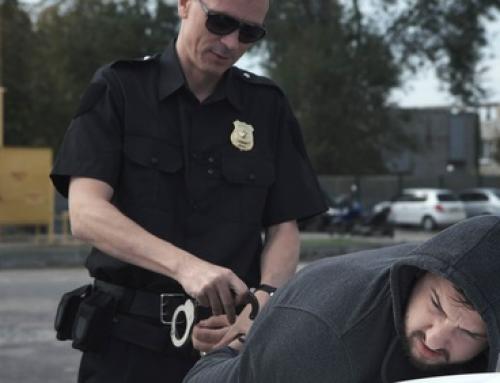Getting convicted of a crime in Pennsylvania has serious consequences. All summary offenses, misdemeanors, and felonies carry fines and jail time, and the courts can impose other penalties as well. Even once you serve your sentence, a conviction can stay with you for the rest of your life. The “collateral consequences” of a conviction can be incredibly expensive, and they can cost you your career, your reputation, and even your relationship with your children.
Here is an overview of the consequences of a criminal conviction in Pennsylvania:
Consequences Imposed in Court
Chapter 11 of Title 18 of the Pennsylvania Consolidated Statutes outlines the primary penalties for summary offenses, misdemeanors, and felonies. These penalties include:
Criminal Fines
All crimes carry fines under Pennsylvania law. In most cases, the amount of the fine imposed for a crime is determined based on the severity of the offense:
- Summary Offenses – Up to $300 (unless a specific statute imposes a greater fine)
- Third–Degree Misdemeanors – Up to $2,500
- Second–Degree Misdemeanors – Up to $5,000
- First–Degree Misdemeanors – Up to $10,000
- Third–Degree Felonies – Up to $15,000
- Second–Degree and First-Degree Felonies – Up to $25,000
- Murder and Attempted Murder – Up to $50,000
Pennsylvania law allows judges to impose higher fines in appropriate cases. A judge may impose a higher fine if (i) a higher amount is authorized by statute, or (ii) the crime resulted in pecuniary (financial) gain. If a crime results in pecuniary gain, the judge can impose a fine equal to two times the amount that the defendant derived from the offense.
Jail or Prison Time
Jail and prison sentences are also determined based on the severity of the offense (or offenses) with which a defendant has been charged. Potential terms of incarceration in Pennsylvania criminal cases include:
- Summary Offenses – Up to 90 days
- Third–Degree Misdemeanors – Up to 1 year
- Second–Degree Misdemeanors – Up to 2 years
- First–Degree Misdemeanors – Up to 5 years
- Third-Degree Felonies – Up to 7 years
- Second-Degree Felonies – Up to 10 years
- First-Degree Felonies – Up to 20 years
- Third-Degree Murder – Up to 40 years
- Second-Degree Murder – Life imprisonment
- First-Degree Murder – Death or life imprisonment
Restitution
In Pennsylvania, the courts can impose restitution under three primary circumstances. A defendant can be ordered to pay restitution if: (i) the crime involves the theft or conversion of property, (ii) the crime results in a substantial decrease in the value of someone else’s property, or (iii) the crime results in personal injury to the victim. The law states that courts may order defendants to pay restitution in a lump sum or monthly installments, and that they must impose restitution “regardless of the current financial resources of the defendant, so as to provide the victim with the fullest compensation for the loss.”
Costs
“In addition to any other sentence imposed, the court may order an offender to pay the cost of any reward paid for the apprehension and conviction of the offender.” Criminal convictions can lead to liability for various other costs and fees as well.
Other Penalties
Certain crimes carry additional penalties beyond those listed above. These penalties do not appear in Chapter 11, but instead in the statutes that outline the specific offenses to which they apply. For example, if you get convicted of driving under the influence (DUI), you can face penalties including a driver’s license suspension, mandatory alcohol treatment and highway safety training, and mandatory installation of ignition interlock devices on your vehicles (for a second or subsequent offense).
“Collateral Consequences” of a Criminal Conviction
Unless you get sentenced to life or death for murder, at some point you will be eligible for release. Depending on the circumstances of your case, you may even be able to avoid incarceration altogether. But, even once you fully serve your sentence, your conviction is still likely to have significant consequences for your day-to-day life. Some examples of these “collateral consequences” include:
Difficulty Obtaining (or Inability to Obtain) a Job
When you have a criminal conviction on your record, you will find it much more difficult to obtain a job. You will also find that you are ineligible for certain job opportunities. If you have (or hope to have) a professional license, your conviction could also result in suspension, revocation, or loss of eligibility.
Loss of Eligibility for Government Assistance
With a conviction on your record, you may not be able to qualify for certain government assistance programs. Some programs exclude felons, while others exclude individuals who have been convicted of certain types of offenses (i.e. drug crimes).
Loss of Child Custody Rights
Under Pennsylvania’s child custody laws, a criminal conviction can lead to loss of custody rights. If you currently have (or are hoping to obtain) visitation, a conviction could lead to loss of your visitation rights or a requirement for your visitation to be supervised.
Limited Options for Finding Loans and Housing
Many banks and financial institutions will not loan money to convicted criminals, and many landlords will not rent their properties to individuals who have criminal records. If you get convicted of assault, domestic violence, or a sex crime, you may be restricted from living within a certain distance of the victim or within a certain distance of parks and school zones.
Loss of Your Reputation at Work and in the Community
Regardless of the circumstances involved in your case, simply being charged with a crime can cause irreparable damage to your reputation at work and in the community. If you get convicted, you will have to live with the consequences for the rest of your life. Your friends, coworkers, family members, and people who used to look up to you will all treat you differently, and you will face daily reminders of how your conviction has changed your life forever.
Request a Free Consultation with a Philadelphia Criminal Defense Lawyer
While the consequences of a criminal conviction can be severe, it will be possible to avoid (or at least mitigate) these consequences in many cases. If you are facing a criminal charge, you should speak with a Philadelphia criminal defense lawyer promptly, and we encourage you to call 267-758-2228 or contact us online for a confidential consultation.






